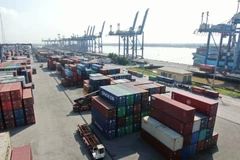Accordingly, after paying corporate income tax, offsetting losses ofprevious years and appropriating financial reserve funds, SOEs will haveto remit 50 per cent of the remaining profits to the EnterpriseDevelopment and Reorganisation Support Fund, managed by the StateCapital Investment Corporation (SCIC).
"Like other capitalcontributors, the State has the right to earn profits from itsinvestments. It will take only half of profits with the remainder to bespent on setting up reward funds and other welfare funds to supportemployees," said Deputy head of the MoF's Corporate Finance DepartmentDang Quyet Tien.
Advocating the proposal, economic expertTran Du Lich, a member of the National Assembly's Economics Committee,said that it was necessary to reclaim SOEs profits for the state budget,especially for large groups getting rich from natural resourceexploitation.
Obviously, many SOEs are opposed to theproposal, saying this rule, if approved, could leave them starved ofcapital for investment given that many banks grant loans based on thefinancial strength of borrowers.
"In the current economicclimate, enterprises should keep all their profits to expand theirbusiness and production activities. The after-tax profits to be kept bySOEs still belong to the State and enterprises should use this capitalto make more profits which will then increase state budget revenues,"said Le Xuan Son, chairman of the members' council of the VietnamAgricultural Material Corporation.
Another salient pointof the draft decree is the requirement that SOEs reduce theirinvestments in non-core business activities from 30 per cent to 15 percent of their charter capital. SOEs would be allowed to contributecapital to such risky sectors as banking, insurance and securities but,for each sector, they may select only one partner and the total amountof capital invested in these partners must not exceed 10 percent oftheir equity capital.
In addition, the portion of capital invested by anSOE in a bank, insurance or securities company must not exceed 10percent of the charter capital of that capital-receiving company./.
























